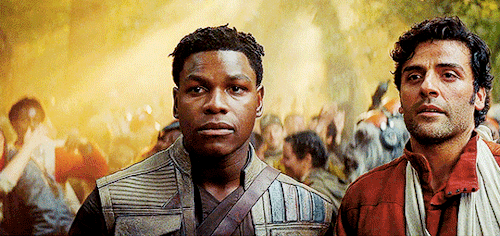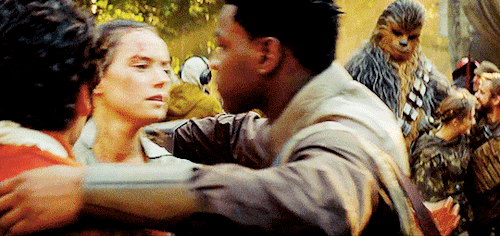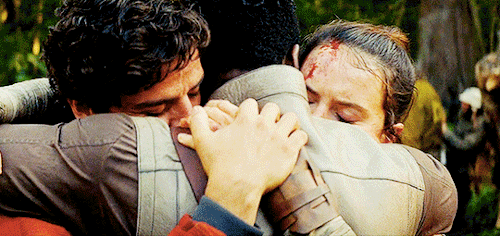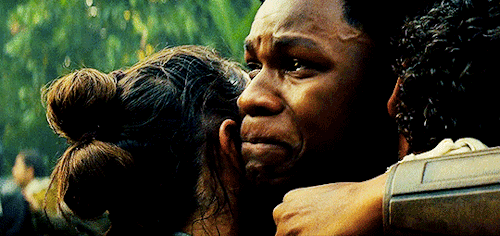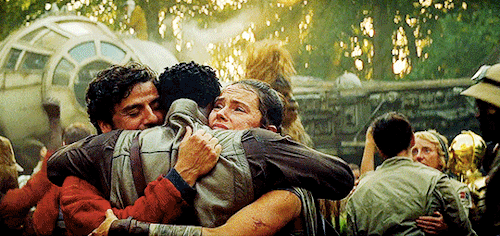Please Please Please Please Reblog If You’re A Writer And Have At Some Point Felt Like Your Writing
please please please please reblog if you’re a writer and have at some point felt like your writing is getting worse. I need to know if I’m the only one who’s struggling with these thoughts
More Posts from Lune-versatile and Others
Okay but why aren’t more people talking about that fact that it’s literally so helpful to put together a playlist based on whatever you’re writing?
It can help for multiple reasons; ones for me would be:
It helps me outline where the story is going
It makes it feel a little more official; like I’ve got my head in the game and there’s no point in turning back now
It gives me a little sense of accomplishment
It gives me something to listen to while writing that’s less likely to distract me; and if it does, the lyrics will only help me imagine the story more
Like- 10000/10 so helpful 100% recommended this, especially if you have attention span issues or if you end up giving up on something if dopamine takes too long to come from it
An aye-write guide to Showing vs. Telling
I’ll bet that if you’ve ever taken an English class or a creative writing class, you’ll have come across the phrase “Show, don’t tell.” It’s pretty much a creative writing staple! Anton Chekov once said “ Don’t tell me the moon is shining. Show me the glint of light on broken glass.” In other words, showing should help you to create mental pictures in a reader’s head.
Showing helps readers bond with the characters, helps them experience the emotions and action more vividly, and helps immerse them in the world you have created. So “show, not tell” is definitely not bad advice - in certain circumstances. But it has its place. More on that later.
So How do I Show?
Dialogue
Thoughts/Feelings
Actions
Visual Details
So instead, of telling me “He was angry”, show me how his face face flushes red, how his throat tightens, how he slams his fist, how he raises his voice, how his jaw clenches, how he feels hot and prickly, how his breathing gets rapid, how his thoughts turn to static, etc.
Instead of telling me “The cafeteria was in chaos”, you could show me someone covered in food and slowly turning crimson, children rampaging under the feet of helpless adults, frenzied shouting, etc.
Handy Hint! Try to avoid phrases like “I heard”, “I felt”, “I smelled”, etc. These are still “telling words” (also known as filters) and may weaken your prose, as your readers could be taken out of the experience and you may lose their attention.
Is Showing Always The Right Thing to Do?
No! Absolutely not! Showing is not always right and telling is not always wrong! It’s important to develop the skill and instinct to know when to use showing and when to use telling, as both can be appropriate in certain occasions.
So, “Show, don’t tell” becomes “Show versus tell”.
What is Showing and Telling?
Showing is “The grass caressed his feet and a smile softened his eyes. A hot puff of air brushed past his wrinkled cheek as the sky paled yellow, then crimson, and within a breath, electric indigo”
Telling is “The old man stood in the grass and relaxed as the sun went down.”
Both of these excerpts are perfectly acceptable to use in your writing! But both do different things, although their meanings are pretty much the same. The first example is immersive, sweeping, visual, engaging. The second example is much more pared back and functional. But both have their places in prose!
Telling is functional. Think about when you tell people things. You tell your children dinner is ready. The news reporter tells you there’s a drop in crime rates. Your best friend tells you she’ll be late because her car broke down on the way to yours. These are brief and mundane moments in everyday life.
So, do these deserve multiple paragraphs with sensory detail and action/feeling/thought for every little thing? Do you need to spend an entire paragraph agonising over a minor detail when there’s a sword dangling (physically or metaphorically) over your MC’s head? No. And I’ll explain why.
When To Use Telling
As before, telling is functional. It’s brief. It’s efficient. It gives a gist of a situation without getting bogged down in detail.
Showing is slow, rich, expansive, and most certainly not efficient!
Here’s an example of some telling:
“Years passed, and I thought of Emily less and less. I confined her to some dark dusty corner of my brain. I had to elbow my memories of her to the side. I was too busy with other things. Finishing school, then university a year later. Life was full and enjoyable. But then, one dark cold September night…”
You can’t show this example, unless you wanted to waste page after page of your MC waking up, going through everyday life, to get to the point your actual story started. If you do that, you will likely kill off any interest a reader would have in your novel and likely, your book itself.
Summing Up
Showing:
Should be used for anything dramatic
Uses thoughts, feelings, dialogue, action, and visual detail
Will likely be used more than telling
Telling:
Can be used for
Delivering factual information
Glossing over unnecessary details
Connecting scenes
Showing the passage of time
Adding backstory (not all at once!)
“I’ve found most authors have the wrong mental picture of the process. Instead of a sprint, publishing is more like a marathon. Slow, steady and consistent action will get you your audience and success.”
— W. Terry Whalin
Chapters: 1/1 Fandom: One Piece Rating: General Audiences Warnings: Creator Chose Not To Use Archive Warnings Relationships: Roronoa Zoro/Vinsmoke Sanji, Roronoa Zoro & Vinsmoke Sanji Characters: Roronoa Zoro, Vinsmoke Sanji, Kuina (One Piece), Monkey D. Luffy, Portgas D. Ace, Aka Ashi no Zeff | Red-Leg Zeff Additional Tags: Soulmates, Alternate Universe - Soulmates, POV Alternating Summary:
A soulmate's words on your right arm doesn't always mean something special, or so Zoro and Sanji naively thought.
Hacks For Writing
Writing (at least for me) is all about momentum. If you stop, you crash and burn. So, here are some hacks I use to keep myself writing.
-Instead of stopping to google information, like “How long does it take for trees to grow,” or “how many different species of birds of paradise are there, simply put "TK" in the spot where the units or information would be and move on. After you are done writing, you can go back and google for the needed information.
-In scenes where you simply cannot think of what to put, simply write something in brackets like, “[The characters reminisce with each other around the fire. This leads into the next topic.]” or something similar. Oftentimes, later writing will give you inspiration for what to put in those spots.
-If you can’t remember the word, or need a synonym, DON’T stop to google. Simply put the word (or “placeholder”) in brackets and come back later. If you are still having trouble finding out or remembering the word when going back through, I would recommend Onelook Reverse Dictionary as a very good source for finding words and synonyms.
-When plotting something out, don’t feel the need to put everything that happens. If you want to, cool! For me, I find I quickly lose disinterest in actually writing when I have every little thing already planned out. It has become boring to me. To combat this, I simply write the main ideas of what I want to happen and things I want to mention (symbolism/foreshadowing) and move on, giving myself room to continue to explore and discover as you write.
-To avoid burnout, If I’m working on a bigger project, I’ll usually also have something that I’m writing on the side that I can switch back and forth so I don’t lose interest.
-Don’t be afraid to use generators! Character names, places, powers, etc. can all be created using a generator. You don’t have to worry about every little thing. Also, if you can’t think of a name or something else at the moment that you could use a generator for, just mark it in brackets (ex: [Name]) and move on.
Lastly, remember that everything you write is for yourself. Having others validate you is always great, but they are the ones who have the privilege of reading your works. You don't owe them anything.
opens box that reads "i wanna draw again". inside lies a note. the note says, "mental illness and difficult circumstances have taken years of interest, accessibility, and skill away from me. i want to forgive myself for that. i want to heal my relationship to my hobbies. i want to feel connected to something that once made me feel good, but the cyclic discouragement is difficult to overcome." i turn over the note. on the back it reads "wannta drawe sexy bodies awooga"
Drafting Your Creative Time: Your Guide to Planning a Year of Creative Writing
2024 is about to start. You’re going to venture into another year of writing incredible stories, but what will that practically look like? I feel more in charge of my creativity by planning rough writing schedules. Here’s how you can do the same without locking yourself into a too-strict calendar that leaves your writing spirit depleted.
Set One Writing Goal
Twelve months is a lot of time, but anyone can handle a single goal. Make the next year easy on yourself by picking one thing you want to accomplish (and let’s not make it “publish my novel” if you’re just starting the manuscript on January 1, given how it takes roughly 18 months of work after you get an agent) (and that can take a few weeks to a few years, depending on your querying experience!).
Try picking a manageable writing goal like these:
I will write 10 chapters of my novel.
I will make a collection of 5 short stories I write this year.
I will submit a short story to at least 3 contests this year.
I will publish one new work of fanfiction in the next 12 months.
I will write one short story in a new genre.
Publishing a book can be a long-term goal, but your 2024 goal should be easy to break down into manageable steps you can accomplish by yourself. You’ll be more likely to reach the finish line and work toward another goal.
Establish a Stress-Free Writing Schedule
Creativity comes and goes, but your writing will never get done if you don’t form some kind of schedule. Your upcoming year could look something like this:
I’ll write every Wednesday night between 7-7:30 p.m.
I’ll use voice-to-text to get my story-related thoughts on virtual paper for five minutes every morning before school.
I’ll do freestyle writing for five minutes on Mondays and Saturdays to keep my thoughts flowing, even if I don’t find more time to work on my story that week.
Your schedule should be realistic, which means it shouldn’t stress you out. Make it match your weekly and daily routine. When do you naturally feel most energized? When can you carve out ten minutes for your craft?
Remember, you can always (and should!) adjust this set schedule as time goes on. Your non-creative schedule most likely won’t look the same on January 1 as it will on December 31.
Save a Few Writing Prompts
You might have a few weeks here or there when you’re juggling life’s responsibilities and can’t get to your WIP. It happens to all of us!
When you’re busy, try answering a writing prompt in three sentences or less. Use your phone, a sticky pad, or whatever’s nearby. You never know if it’ll inspire you later when you’re free to write.
In the meantime, you’ll keep using the creative side of your brain so your writing abilities don’t feel so distant.
Check out these prompt apps if getting online isn’t your thing or takes too much time from your busy schedule!
Find a Writing Community
There are so many ways to build a writing community. Start a tumblr about it (guilty as charged) or join a Facebook group. Find an active Reddit thread about your favorite genre or join a Discord server with writers.
You don’t even need to start talking to others and making friends if it makes you anxious. Read what people are saying to get inspired by everyone. You’ll naturally join in when you get excited about something they’re discussing and keep creative writing at the front of your mind.
Read Lots of Books
I always feel more connected to my writing when I’m actively reading. Artists of any kind need a source of inspiration to keep their creativity flowing. Keep an actively growing To Be Read list with apps like Story Graph (a Goodreads-type app that isn’t owned by Amazon and gives so much more information about your curated reading history!).
Visit your local library if you don’t have the money for new books all the time (who does?). As you get inspired by what you read, you’ll also pick up skills from authors you admire or note things you don’t want to recreate. Study each story’s structure and character development. You’ll return to your WIPs with renewed passion.
Embrace the Scary Editing Stage
Your first draft is your thoughts and dreams poured out on paper. The editing stage is where you refine and re-write your work until it shines. Set aside specific time for editing after completing a first draft of any story. Even if your editing phase doesn’t take very long, working on line edits and developmental edits will make your work so much better.
It’s also a normal form of frustration for writers, but one that happens no matter where your writing goes (on fanfiction websites, short story contests, a literary agent’s desk, etc.).
Schedule Your Rest
Writing might feel like a natural hobby, but your brain and body still need to rest after periods of intense focus/work. Schedule rest periods into your daily or weekly calendar. It’s time to recharge in whatever ways best suit your body, like:
Sitting outside
Walking in a park
Reading
Sitting in a hot bath
Going to the movies
Sleeping in
Keep in mind that sometimes you’ll need more rest than others. Extend some self-compassion by checking in with your physical and mental energy frequently during the next year. If you take time to rest, you’ll be less likely to burn out creatively.
-----
This next year will be full of growth, challenges, and joys in your writing life. Embrace every second by resting and writing in new ways.
any tips on how to keep myself motivated on my WIP and not totally abandon it? 🥲
I have a whole Motivation master list, but here are some particular posts that might help:
5 Reasons You Lost Interest in Your WIP, Plus Fixes! Guide: How to Rekindle Your Motivation to Write Getting Excited About Your Story Again Feeling Unmotivated with WIP Getting Unstuck: Motivation Beyond Mood Boards & Playlists Getting Your Writing Magic Back After a Break
Happy writing!
•••••••••••••••••••••••••••••••••
I’ve been writing seriously for over 30 years and love to share what I’ve learned. Have a writing question? My inbox is always open!
Learn more about WQA
See my ask policies
Visit my Master List of Top Posts
Go to ko-fi.com/wqa to buy me coffee or see my commissions
hey do you have any tips on how to write surreal horror (mostly short stories?) it's a genre that i've really been interested in trying to write, but i'm not too sure how to go about it (and thanks for providing such a useful blog :D)
I love surreal horror.
Okay.
Plot twists are your best friend. Do the unexpected. Do a 180 last second, turn everything around on the reader. Obviously it has to be believable with in the context of the story, but keep it a surprise.
False sense of security? Works wonders. Nothing is safe. Let readers think something is good/pure/innocent/calm/safe/helpful/etc when it’s not. Lure them into that trap. Let them believe and then rip it away from them.
Invert things. Similar to the false sense of security. Take things that are usually strongly associated with one thing, and associate it with the opposite. Take something dark and make it the good thing. Take something bright and make it evil. Take something sweet and make it bitter. Take something healthy and make it deadly. If you do it right, you can make the reader curiously uncomfortable.
With surreal horror you want to shock your reader. You want to make them feel strangely uncomfortable. You want to make them question things.
Hope that helps :)
-
 ineloquent-tumbling reblogged this · 3 days ago
ineloquent-tumbling reblogged this · 3 days ago -
 draks-bees reblogged this · 3 days ago
draks-bees reblogged this · 3 days ago -
 draks-bees liked this · 3 days ago
draks-bees liked this · 3 days ago -
 themadauthorshatter reblogged this · 3 days ago
themadauthorshatter reblogged this · 3 days ago -
 themadauthorshatter liked this · 3 days ago
themadauthorshatter liked this · 3 days ago -
 catsafari25 reblogged this · 3 days ago
catsafari25 reblogged this · 3 days ago -
 cheloneuniverse liked this · 3 days ago
cheloneuniverse liked this · 3 days ago -
 logicalabsurdity reblogged this · 3 days ago
logicalabsurdity reblogged this · 3 days ago -
 jewul liked this · 3 days ago
jewul liked this · 3 days ago -
 spicycinnabun reblogged this · 3 days ago
spicycinnabun reblogged this · 3 days ago -
 jikanet-tanaka liked this · 4 days ago
jikanet-tanaka liked this · 4 days ago -
 distractionactivated liked this · 4 days ago
distractionactivated liked this · 4 days ago -
 mass-convergence reblogged this · 4 days ago
mass-convergence reblogged this · 4 days ago -
 mass-convergence liked this · 4 days ago
mass-convergence liked this · 4 days ago -
 damnsmartblueboxes reblogged this · 4 days ago
damnsmartblueboxes reblogged this · 4 days ago -
 moonshine-aqua reblogged this · 4 days ago
moonshine-aqua reblogged this · 4 days ago -
 saekhwa reblogged this · 5 days ago
saekhwa reblogged this · 5 days ago -
 strlghtprncss liked this · 5 days ago
strlghtprncss liked this · 5 days ago -
 damzel-fly reblogged this · 5 days ago
damzel-fly reblogged this · 5 days ago -
 axe8472 reblogged this · 6 days ago
axe8472 reblogged this · 6 days ago -
 axe8472 liked this · 6 days ago
axe8472 liked this · 6 days ago -
 illisidifan liked this · 6 days ago
illisidifan liked this · 6 days ago -
 thisisevenharderthannamingablog reblogged this · 6 days ago
thisisevenharderthannamingablog reblogged this · 6 days ago -
 suriitle liked this · 6 days ago
suriitle liked this · 6 days ago -
 urboed reblogged this · 6 days ago
urboed reblogged this · 6 days ago -
 urboed liked this · 6 days ago
urboed liked this · 6 days ago -
 frosted-galaxy-cluster liked this · 1 week ago
frosted-galaxy-cluster liked this · 1 week ago -
 goreyakkisbowl liked this · 1 week ago
goreyakkisbowl liked this · 1 week ago -
 save-system reblogged this · 1 week ago
save-system reblogged this · 1 week ago -
 archivist-caleb reblogged this · 1 week ago
archivist-caleb reblogged this · 1 week ago -
 archivist-caleb liked this · 1 week ago
archivist-caleb liked this · 1 week ago -
 sparklydazecat liked this · 1 week ago
sparklydazecat liked this · 1 week ago -
 thymejot reblogged this · 1 week ago
thymejot reblogged this · 1 week ago -
 sisislair liked this · 1 week ago
sisislair liked this · 1 week ago -
 himemasa liked this · 1 week ago
himemasa liked this · 1 week ago -
 misantropocene liked this · 1 week ago
misantropocene liked this · 1 week ago -
 alextheidiott liked this · 1 week ago
alextheidiott liked this · 1 week ago -
 beautyfly101 reblogged this · 1 week ago
beautyfly101 reblogged this · 1 week ago -
 everywriterneedsfanart liked this · 1 week ago
everywriterneedsfanart liked this · 1 week ago -
 nimthirielrinon reblogged this · 1 week ago
nimthirielrinon reblogged this · 1 week ago -
 envy-blogs reblogged this · 1 week ago
envy-blogs reblogged this · 1 week ago -
 3n-vi-ous liked this · 1 week ago
3n-vi-ous liked this · 1 week ago -
 ryderdire reblogged this · 1 week ago
ryderdire reblogged this · 1 week ago -
 itsimii liked this · 1 week ago
itsimii liked this · 1 week ago -
 grandmaster-paradox reblogged this · 1 week ago
grandmaster-paradox reblogged this · 1 week ago -
 meteor-anarchy reblogged this · 1 week ago
meteor-anarchy reblogged this · 1 week ago -
 20-exayear-halflife liked this · 1 week ago
20-exayear-halflife liked this · 1 week ago -
 laurel-dreams reblogged this · 1 week ago
laurel-dreams reblogged this · 1 week ago

